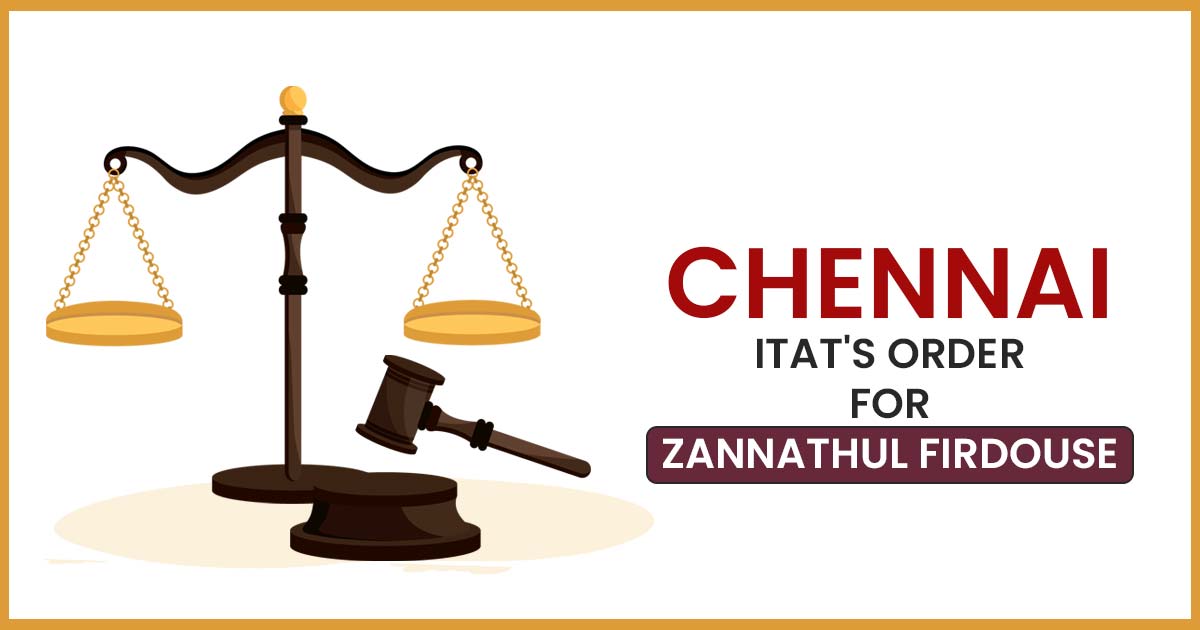
Buying residential house property prior to the last ITR filing date makes the taxpayer qualified for the deduction under section 54F of the Income Tax Act, the Chennai bench of the Income Tax Appellate Tribunal (ITAT) ruled.
The petitioner is an individual and has submitted her Income tax return for the AY 2012-13 dated 01.06.2013, disclosing a total income of Rs. 2,76,760/-. At the time of the the fiscal year pertinent to the AY 2012-13, the appellant including 7 other family members entered into a Joint Development Agreement (JDA) dated 01.04.2011, for the development of 72092 sq. ft. of land at Zameen Pallavaram Village.
The appellant and the co-owners have received 91833 sq. ft. of the super built-up area comprised of 70 residential apartments and 3 penthouses along with 27 covered car parking and 49 open car parking, as per JDA.
The appellant computed long-term capital gains arising from the transfer of a property based on the JD Agreement dated April 1, 2011, for the assessment year 2012-13. This calculation involved considering her share of the consideration received for the property transfer. Additionally, the appellant sought a deduction under Section 54F of the Income Tax Act for the construction of flats to be received from the buyer.
However, the Assessing Officer rejected the deduction under Section 54F, citing two main reasons. Firstly, the assessee had claimed deductions for multiple flats, and secondly, the construction of the property exceeded the due date specified in Section 54F of the Act.
Since the property construction was still incomplete as of March 4, 2016, the Assessing Officer disallowed the deduction under Section 54F and added Rs. 64,92,456/- to the total income.
Displeased with this assessment order, the assessee filed an appeal with the CIT(A). After considering the relevant submissions from the assessee, the CIT(A) concluded that the appellant was not eligible for a deduction under Section 54F of the Income Tax Act. This decision was based on the fact that the appellant had violated two conditions stipulated in Section 54F.
Specifically, she purchased a new residential flat on May 24, 2012, in addition to the new flats for which she claimed deductions under Section 54F of the Act. Unsatisfied with the CIT(A)’s decision, the assessee subsequently appealed to the tribunal.
Upon considering arguments from both parties, the tribunal observed that Section 54F of the Act specifies the conditions for claiming deductions on capital gains. To be eligible for this deduction, the assessee must acquire a new residential house property either one year before or two years after the transfer of the original asset.
Additionally, regarding property construction, it must be completed within three years from the date of the original asset’s transfer. In the case at hand, the assessee purchased a new residential house property on April 25, 2012, which falls within the two-year period following the transfer of the original asset.
The two-member bench, consisting of Manmohan Das (Judicial Member) and Manjunatha G. (Accountant Member), concluded that since the appellant had met all the prescribed conditions for claiming a deduction under Section 54F of the Income Tax Act, the CIT(A) should have granted the alternate claim made by the assessee for a deduction under Section 54F of the Income Tax Act.
Consequently, the CIT(A)’s decision was overturned, and the Assessing Officer was instructed to allow the deduction under Section 54F of the Act in relation to the residential house property acquired by the assessee on April 25, 2012. As a result, the appeal was permitted.
| Case Title | Zannathul Firdouse Vs. The Income Tax Officer |
| Citation | ITA No.: 422/Chny/2023 |
| Date | 31.08.2023 |
| Appellant by | Shri. B. Ramakrishna, FCA |
| Respondent by | Shri. D. Hema Bhupal, JCIT |
| Chennai ITAT | Read Order |








